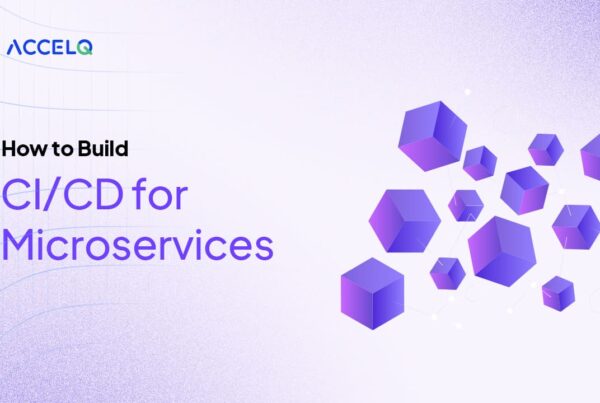What is Jenkins in DevOps

CI/CD pipelines are the foundation of modern DevOps processes, allowing teams to provide more value to customers by making it easier and quicker to deliver high-quality software. Among the various tools available, Jenkins CI/CD is one of the pioneers in automating the software development lifecycle (SDLC). Jenkins, with its open-source flexibility and formidable plugin ecosystem, enables DevOps teams to integrate, test, and deploy changes seamlessly, paving the way to production from code.
Jenkins In DevOps further helps developers systematically integrate changes into the software delivery process.
What is Jenkins?
Jenkins is an open-source continuous integration/continuous delivery and deployment (CI/CD) automation software written in the Java programming language. Written in Java, Jenkins enables teams to build dynamic CI/CD pipelines, orchestrating the entire software delivery lifecycle—from code integration to deployment. It is used to implement CI/CD workflows, called pipelines. As indicated earlier, Jenkins helps manage and control several stages of the software delivery process, including build, documentation, test automation, packaging, and static code analysis.
Key Features of Jenkins
- Server-Based Architecture: Works over a web server like Apache Tomcat, providing a stable and scalable automation environment.
- Seamless Integrations: Compatible with popular DevOps tools like Maven, Gradle, Git, Docker, and Kubernetes.
- Unified Workflows: This includes building, testing, packaging, deploying, and Analyzing—all critical stages of delivery in a single integrated process. With this approach, CI/CD becomes simpler.
- Extensive Plugin Ecosystem: Provides more than 1,800 plugins that allow individual teams to tailor Jenkins for tailored project requirements and industry workflows.
- Container-Friendly: It eases the task of testing and packaging software by utilizing container technologies like Docker and Kubernetes to make deployments more consistent and reliable.
- Ease of Use: Jenkins is easy to install, highly configurable, and has a large, active community of users and contributors.
What is the role of Jenkins in DevOps?
Jenkins is one of the oldest CI/CD tools, and it is a build server used in DevOps processes. By facilitating Continuous Integration (CI) and Continuous Delivery (CD), Jenkins is at the center of DevOps, one of the new pillars in software development. CI is a software development practice in which code changes are merged into a shared repository several times a day so that problems can be detected early. However, CD allows reliable applications to be delivered in very short cycles, thus making deployments faster and less prone to error.
Jenkins pipeline supports continuous delivery improvement, which automates many repeating tasks to accelerate the software delivery process. So, building, testing, and deploying are the basic processes that can be automated with the Jenkins pipeline. Then, there is workflow automation that can help you with the process and facilitate the modern world's software development.
How does Jenkins tool help DevOps teams?
With Jenkins in DevOps, teams can automate testing codes by running scripts and can integrate them with various test automation tools. As highlighted Jenkins supports a wide range of testing frameworks and tools, and DevOps teams can thus choose ones that best fit their needs. Jenkins can be configured to run tests automatically in case of code changes.
- Automated Testing: Jenkins automatically tests the code by running these scripts.
- Testing Framework Integration: Fully Customizable Jenkins has support for a vast array of testing frameworks and tools (Selenium, JUnit, TestNG) available out there, allowing teams to pick the one that fits correctly against their needs.
- Continuous Feedback: Test automation pipelines trigger tests in Jenkins and give immediate feedback about the code so that teams can catch issues early.
- Scalability: Whether you are building a small or large project, Jenkins can automatically run tests or deploy code when changes are detected.
Building Pipeline Visualization from code integration to deployment:
DevOps teams can visually represent the software delivery process, from code integration to deployment. This supports testing teams and makes it easier for them to understand and manage the process.
This step is customizable, and teams can tweak it to their needs. For example, the visualization process can be customized to show the status of each stage of the delivery process. There is a dashboard that can monitor HTTP(S) service uptime and certificate information.
Visualization can be done right from code integration to testing to deployment. Teams can thus identify issues and bottlenecks in this process and get them addressed.
Workflow Scripting to expedite software delivery:
Workflow scripting in Jenkins can help teams script and standardize workflows. This ensures that each delivery process is consistent and predictable.
Jenkins supports the Groovy scripting language for workflow scripting. Teams can hence leverage the power and flexibility of Groovy to script their workflows. It provides a user-friendly interface for scripting workflows, making the process easy even for those who need to be more skilled in Groovy.
Test Automation:
Jenkins can be triggered by code changes in repositories like GitHub, Bitbucket, and GitLab can help handle multiple downstream issues simultaneously during large deployments.
Plugins in Jenkins:
There are over a thousand plugins that can be used to extend its capabilities and make it more user specific. For instance, the DevOps Portal plugin can track the progress of application builds, monitor artifact size, and track releases and deployments.
Optimizing DevOps with Jenkins
Building Pipeline Visualization - code to deployment:
DevOps teams can visually represent the software delivery process, from code integration to deployment. This supports testing teams and makes it easier for them to understand and manage the process.
This step is customizable, and teams can tweak it to their needs. For example, the visualization process can be customized to show the status of each stage of the delivery process. There is a dashboard that can monitor HTTP(S) service uptime and certificate information.
Visualization can be done right from code integration to testing to deployment. Teams can thus identify issues and bottlenecks in this process and get them addressed.
Workflow Scripting to expedite software delivery:
Workflow scripting in Jenkins can help teams script and standardize workflows. This ensures that each delivery process is consistent and predictable.
Jenkins supports the Groovy scripting language for workflow scripting. Teams can hence leverage the power and flexibility of Groovy to script their workflows. It provides a user-friendly interface for scripting workflows, making the process easy even for those who need to be more skilled in Groovy.
Test Automation:
Jenkins can be triggered by code changes in repositories like GitHub, Bitbucket, and GitLab can help handle multiple downstream issues simultaneously during large deployments.
Plugins in Jenkins:
There are over a thousand plugins that can be used to extend its capabilities and make it more user specific. For instance, the DevOps Portal plugin can track the progress of application builds, monitor artifact size, and track releases and deployments.
Conclusion
Jenkins in DevOps helps test any identified issues simultaneously, even in the case of massive deployments. The Jenkins DevOps model automates this process, as every piece of merged code is mainly at a production-ready stage at any point.
Resources are empowered as it gives them complete workflow control and effectively manages the CI/CD pipeline. Together with enhanced collaboration, shortening the SDLC is one of the primary objectives of DevOps. Let us remember that manual testing is slow and prone to bottlenecks in DevOps, which calls for automating the testing process. The integration of codeless test automation with DevOps and Agile approaches can be used to create automated tests that can run continuously, providing quick feedback on the quality of the application.
Prashanth Punnam
Sr. Technical Content Writer
With over 8 years of experience transforming complex technical concepts into engaging and accessible content. Skilled in creating high-impact articles, user manuals, whitepapers, and case studies, he builds brand authority and captivates diverse audiences while ensuring technical accuracy and clarity.
Discover More
 Scalable CI/CD Solutions with Azure DevOps for Enterprise Applications
Scalable CI/CD Solutions with Azure DevOps for Enterprise Applications
Scalable CI/CD Solutions with Azure DevOps for Enterprise Applications
 How to Build CI/CD for Microservices
How to Build CI/CD for Microservices
































